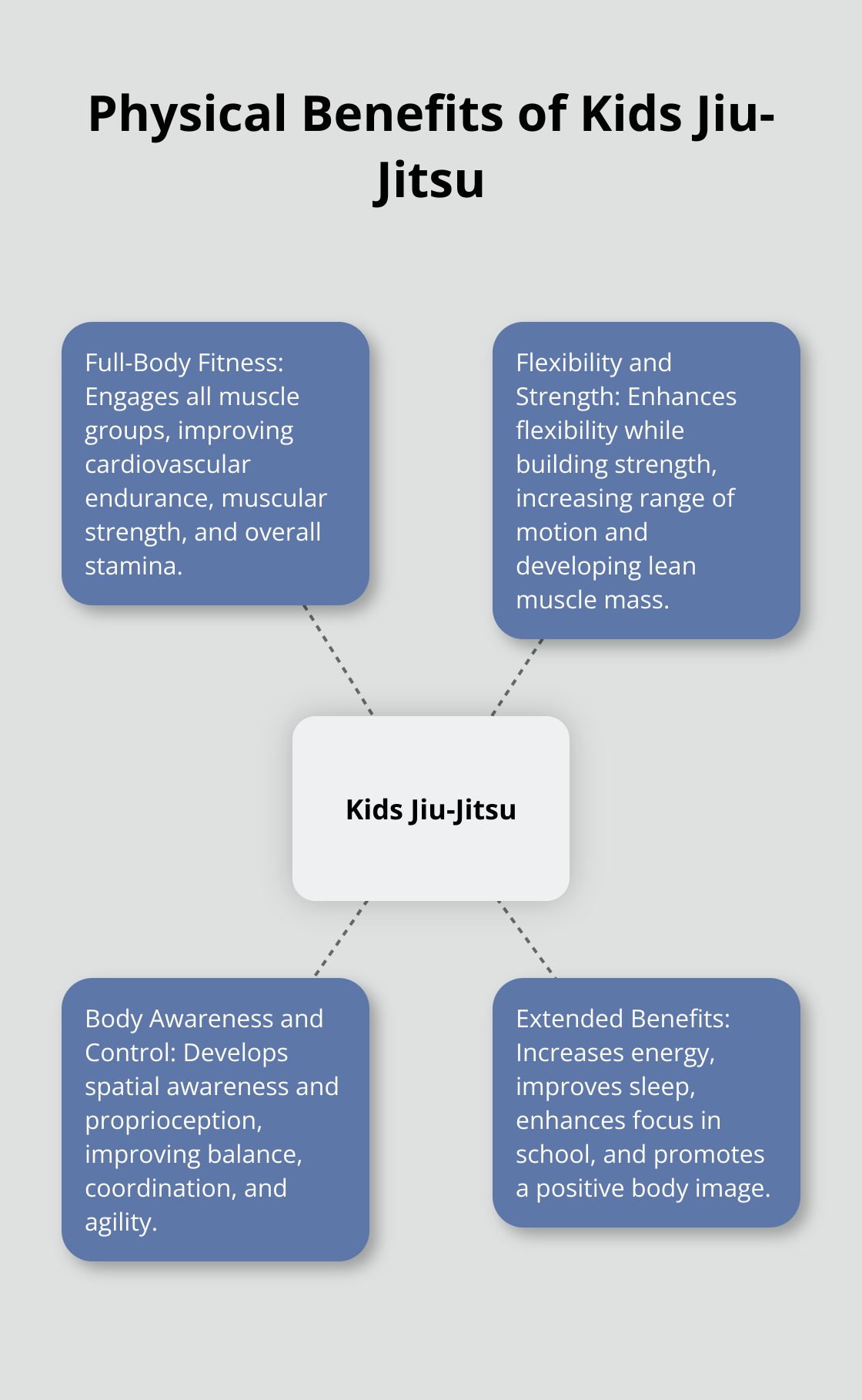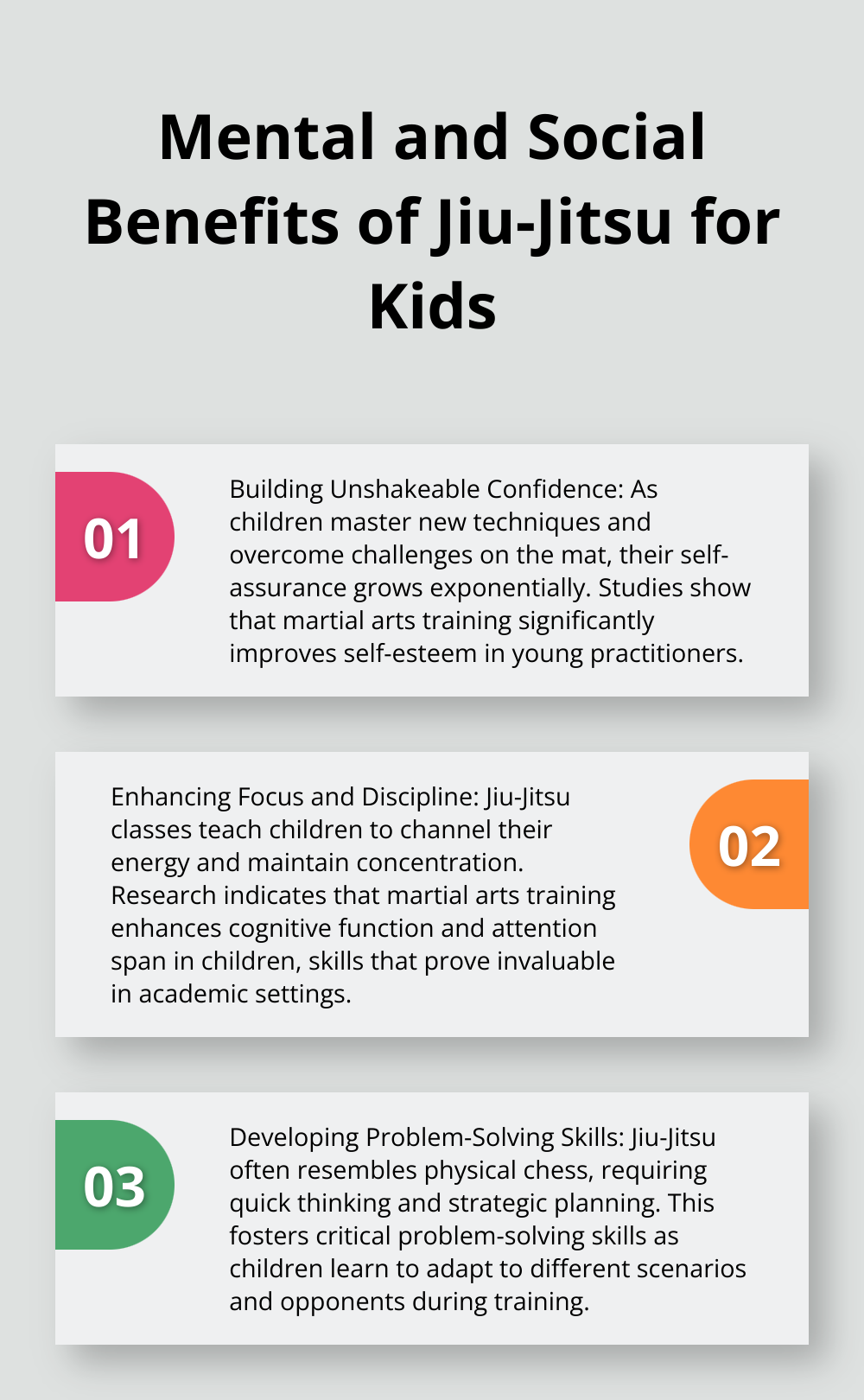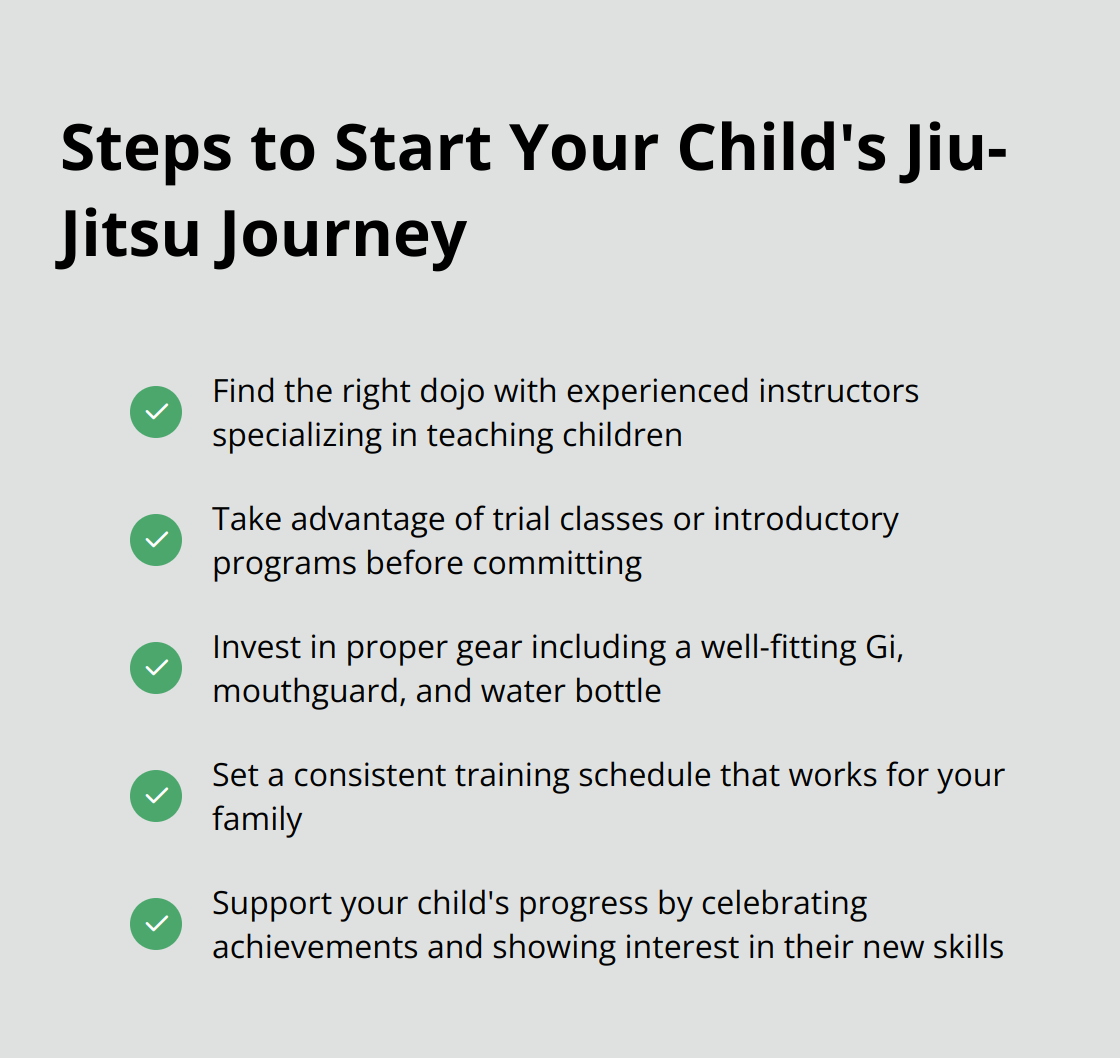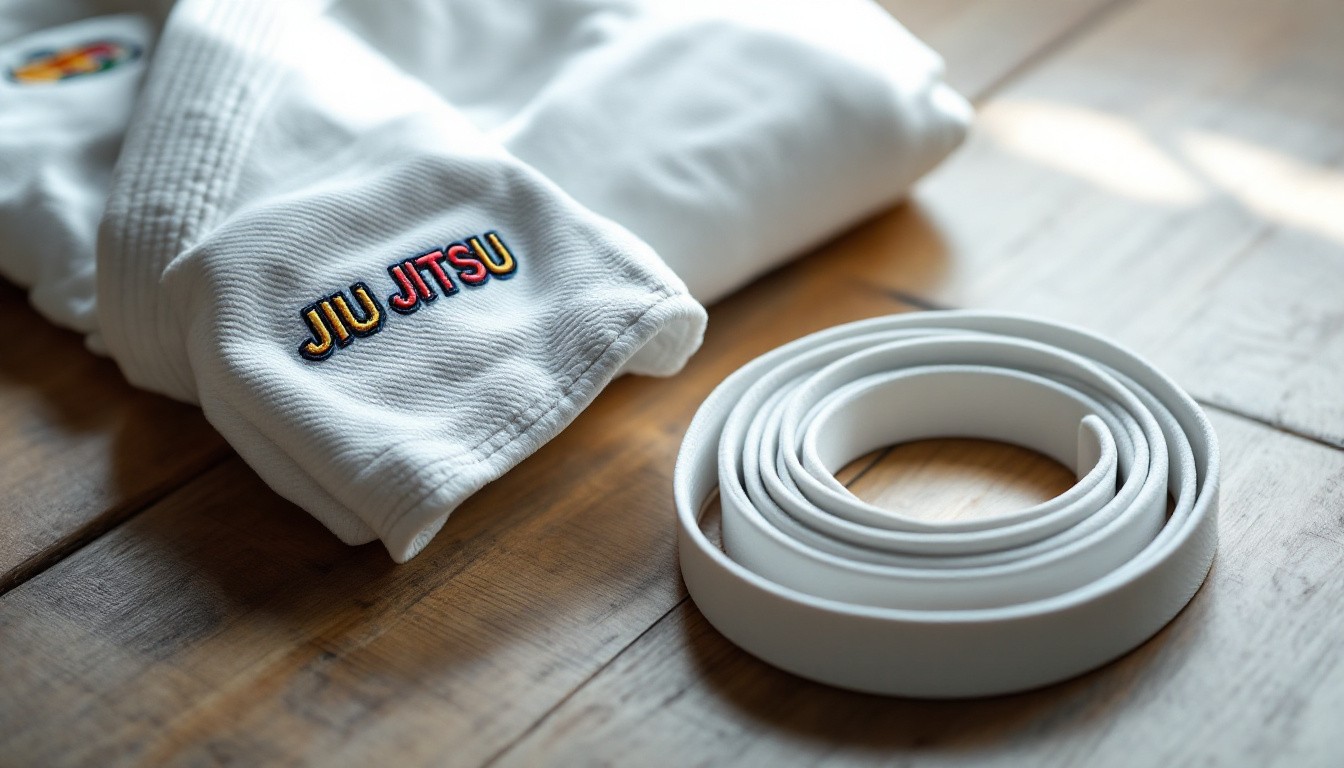At Jiu Jitsu, we believe in the transformative power of martial arts for children. Kids Jiu Jitsu offers a unique blend of physical, mental, and social benefits that can shape a child’s development in profound ways.
From improved fitness and coordination to enhanced self-confidence and problem-solving skills, this martial art provides a comprehensive approach to growth. In this post, we’ll explore these benefits and guide you through the process of getting your child started on their Jiu Jitsu journey.
Physical Powerhouse: How Jiu-Jitsu Transforms Kids’ Bodies
Jiu-Jitsu offers a comprehensive workout that surpasses traditional sports for children. At Souza Grappling Co., we witness the remarkable physical transformations this martial art brings to young practitioners.
A Full-Body Fitness Revolution
Jiu-Jitsu engages all muscle groups, providing an unparalleled full-body workout. Children who practice regularly often experience improvements in cardiovascular endurance, muscular strength, and overall stamina. A study examined the differences in body balance of Brazilian Jiu-Jitsu (BJJ) athletes according to body mass classification.
Flexibility and Strength: The Dynamic Duo
The unique movements in Jiu-Jitsu naturally enhance flexibility while building strength. Children learn to use their bodies in innovative ways, which increases their range of motion and develops lean muscle mass. This combination proves particularly beneficial during growth spurts, as it helps prevent injuries and promotes balanced physical development.
Mastering Body Awareness and Control
One of the most underappreciated benefits of Jiu-Jitsu is its profound impact on body awareness and control. As children learn techniques, they develop a keen sense of spatial awareness and proprioception (the ability to understand where their body is in space). This heightened awareness translates into improved balance, coordination, and agility-skills that benefit children in all areas of life, from sports to everyday activities.
Beyond the Mat: Extended Physical Benefits
The physical advantages of Jiu-Jitsu extend far beyond training sessions. Children who practice this martial art often become more energetic, sleep better, and even display improved focus in school. As they progress in their training, many also develop a more positive body image and a greater appreciation for physical health and fitness.
At Souza Grappling Co., we focus on drills that specifically target these areas. Our “animal walks” exercise (where kids mimic the movements of different animals) serves as a fun way to improve coordination and body control. Parents frequently report noticeable improvements in their children’s posture and movement patterns within just a few weeks of starting Jiu-Jitsu.

The physical transformation Jiu-Jitsu brings to children lays a solid foundation for their overall development. But the benefits don’t stop at the physical level. Let’s explore how this martial art shapes young minds and fosters essential social skills.
Beyond the Mat: Jiu-Jitsu’s Mental and Social Impact
Building Unshakeable Confidence
Jiu-Jitsu instills a deep-seated confidence in children. As they master new techniques and overcome challenges on the mat, their self-assurance grows exponentially. A study published in the Journal of Sports Science and Medicine found that martial arts training significantly improved self-esteem in young practitioners.
The Art of Focus and Discipline
Children learn to channel their energy and maintain concentration in Jiu-Jitsu classes, skills that prove invaluable in academic settings. The International Journal of Environmental Research and Public Health reported that martial arts training enhances cognitive function and attention span in children.
Problem-Solving Warriors
Jiu-Jitsu often resembles physical chess. It requires quick thinking and strategic planning, which fosters critical problem-solving skills. Drills that challenge children to think on their feet, adapting to different scenarios and opponents, form an integral part of training.
Forging Social Bonds
The collaborative nature of Jiu-Jitsu creates a unique social environment. Children learn to communicate effectively, work in pairs, and support their training partners. This fosters empathy, teamwork, and lasting friendships. Many parents report that their once-shy children become more socially confident after joining Jiu-Jitsu programs.
Emotional Regulation and Stress Management
Jiu-Jitsu provides an excellent outlet for emotional expression and stress relief. Through physical activity and mindfulness practices (often incorporated in training), children develop better emotional regulation skills. This can lead to improved behavior at home and school, as well as better overall mental health.

The mental and social benefits of Jiu-Jitsu extend far beyond the training mat. As children progress in their martial arts journey, these skills become ingrained in their daily lives, setting them up for success in various aspects of life. Now, let’s explore how parents can take the first steps to introduce their children to this transformative practice.
Launching Your Child’s Jiu-Jitsu Journey
Find the Right Dojo
The first step to start your child in Jiu-Jitsu is to find a reputable school. Look for dojos with experienced instructors who specialize in teaching children. Check online reviews, ask for recommendations from other parents, and visit multiple schools to get a feel for their teaching styles and atmosphere. Pay attention to the cleanliness of the facility and the instructor-to-student ratio during classes.
Experience Before Commitment
Most quality Jiu-Jitsu schools offer trial classes or introductory programs. Take advantage of these opportunities to see how your child responds to the training environment. Some schools provide a complimentary 10-day free trial for new students, which allows families to experience classes firsthand before making a commitment.
Invest in Proper Gear
Once you choose a school, invest in proper gear. Essential items include a well-fitting Gi (the traditional uniform), a mouthguard, and a water bottle. Some schools may have specific requirements, so check with the instructor before making purchases. Quality gear ensures your child’s comfort and safety during training.
Establish a Consistent Schedule
Consistency is key in Jiu-Jitsu. Set a schedule that works for your family. Many schools offer flexible class times six days a week to accommodate busy schedules. Make Jiu-Jitsu a priority, but balance it with other activities and schoolwork.
Support Your Child’s Progress
As your child progresses, celebrate their achievements (no matter how small). Attend their promotions, listen to their experiences, and show interest in their new skills. Your support will fuel their motivation and help them overcome challenges on and off the mat.

Starting Jiu-Jitsu is not just about learning techniques; it’s about embarking on a journey of personal growth. With the right approach and support, your child will thrive in this dynamic martial art, reaping benefits that extend far beyond the dojo.
Final Thoughts
Kids Jiu Jitsu offers a wealth of benefits beyond physical fitness. This martial art cultivates strength, flexibility, and coordination while nurturing mental resilience and social skills. It provides a unique platform for personal growth, fostering self-confidence, discipline, and problem-solving abilities that serve children well in all aspects of life.
The journey into Jiu Jitsu begins with finding the right program. A supportive environment with experienced instructors can make all the difference in your child’s martial arts experience. We encourage parents to explore the transformative potential of Jiu Jitsu for their children (the skills learned often translate into improved performance in school, better social interactions, and a more balanced approach to life’s challenges).
At Souza Grappling Co., we provide a comprehensive martial arts experience for children and adults. Our facility offers a range of classes including Jiu Jitsu, Muay Thai, Yoga, and Self-Defense, all led by expert trainers in a safe environment. We offer classes six days a week and provide a complimentary three-day pass for newcomers to experience our programs firsthand.




